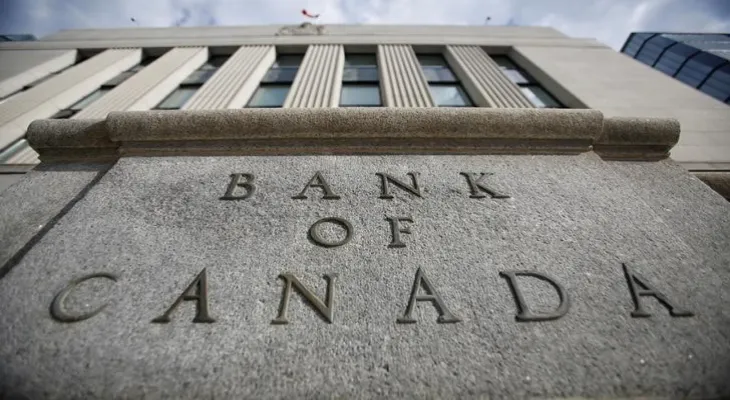Search here
Newspaper
Search here

Arab Canada News
News

Published: October 18, 2024
The Bank of Canada (BoC) will announce the next interest rate on Wednesday, October 23.
Earlier this week, Statistics Canada reported that the country's inflation rate has dropped to 1.6 percent, which is well below the Bank of Canada's target of 2 percent.
This would bolster current speculation that a series of interest rate cuts will come soon.
The economic outlook report issued by CIBC, published in September, states that something more than expectations will happen in less than five months - with two cuts of half a point in December and January.
Avery Shenfeld, an economist at CIBC, said in the report: "This contrasts with previous expectations which suggested a 25 basis points (0.25 percent) rate cut at a time, and we no longer expect any pauses on the way to lower restrictive interest rates."
This means the rate could drop to 3 percent in January. But since that report, things have changed slightly.
Penelope Graham, a mortgage expert at Ratehub.ca, believes that the half-point cut could come sooner.
She explained, "The recent Consumer Price Index (CPI) report this week has given the Bank of Canada all the logical reasons it needs to make a significant interest rate cut next week; with inflation dropping to much lower than the bank's expectations and the target range at 1.6 percent, it's clear they will do it."
She stated: "We need to take faster action on interest rates to support the slowing economy."
She clarified that "in the event of a 50 basis points (0.5 percent) cut, the overnight lending rate in Canada would decrease to 3.75 percent, a level not seen since December 2022."
U.S. inflation figures also affect Canada, its sister market.
Graham says bond yields have fluctuated above 3 percent in recent weeks due to stronger-than-expected U.S. inflation figures and job reports on both sides of the border.
However, she believes that the latest update of the Consumer Price Index in Canada has "strongly reinforced" market expectations for a larger interest rate cut. Graham added: "Canadian government yields for five years have dropped to the range of 2.9 percent."
"This could put downward pressure on fixed mortgage rates, as the lowest five-year rate in Canada currently stands at 3.99 percent."
New mortgages and renewals Graham told us that with prices changing frequently, this is a volatile time to shop for a new mortgage or prepare for renewal. She advised: "It’s important for borrowers to explore all pricing options available to them in the market and assess which rate, term, and duration is most beneficial."
"Working with a mortgage specialist is essential in crafting your personal pricing strategy as rates trend downward."
According to her analysis, although there hasn't been a significant rise, strong evidence shows that homebuyers across Canada are responding to recent interest rate cuts. "The latest national sales figures indicate a monthly and yearly increase.
However, as expectations now shift towards larger interest rate cuts in the coming months, buyers may resume a wait-and-see approach to gauge how much further borrowing costs may decline."
Nonetheless, not everyone will be happy with interest rate cuts. Investors and savers will see a decline in their yield rates based on falling lenders' base rates, especially if significant cuts are realized.
If the Bank of Canada announces a major cut, let's assume that a homeowner put down a 10 percent down payment on a property valued at $669,630 - the average house price according to CREA numbers from September - with a variable rate of 5.30 percent paid over 25 years (total mortgage amount of $621,350).
They have a monthly mortgage payment of $3,721. Using Ratehub.ca's mortgage payment calculator, if a 0.5 percent interest rate cut is announced, the homeowner's variable mortgage rate would decrease to 4.80 percent, and their monthly payment would drop to $3,543.
This means that the homeowner would pay $178 less per month or $2,136 less annually on mortgage payments.
Comments